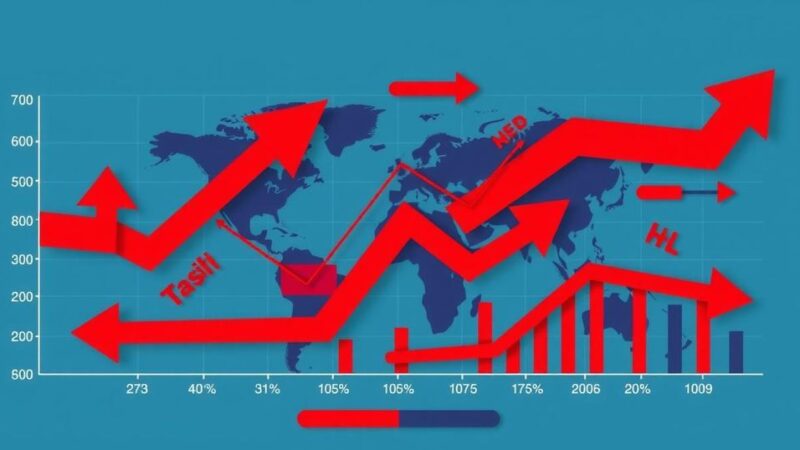Professor Peter Quartey emphasizes that Ghana’s significant borrowing has not resulted in expected economic growth or investment. He calls for a 60 percent debt ceiling and improved project selection processes to ensure loans contribute positively to the economy. His analysis reveals inefficiencies in capital expenditure and project management practices as key barriers to progress in national development.
Professor Peter Quartey, an esteemed economist, recently addressed the persistent lack of investment and economic growth in Ghana despite substantial borrowing over the last two decades. Funds have predominantly been allocated to salaries and servicing loan interests, rather than being invested in productive sectors, according to Prof. Quartey, who also holds the position of Director at the Institute of Statistical, Social, and Economic Research (ISSER), University of Ghana.
During his inaugural lecture as a Fellow of the Ghana Academy of Arts and Sciences, Professor Quartey urged for the introduction of legislation establishing a 60 percent debt ceiling. He emphasized the need for a structured approach to ensure that loans align with investments capable of generating returns and fostering economic development, thereby improving the welfare of citizens.
His analysis pointed out that public investment has had a minimal effect on long-term economic growth owing to inadequate project appraisal and management practices. Quartey noted that Ghana’s national debt rose from 42.9 percent in 2013 to 82.9 percent by 2023, before stabilizing to 61.8 percent through a debt restructuring program projected for the end of 2024.
Furthermore, he highlighted a concerning decline in capital expenditure, which shrank from 6.9 percent of Gross Domestic Product (GDP) in 2010 to 2.4 percent in 2023, with only a slight increase to 2.5 percent anticipated for 2024. Capital spending is crucial as it contributes to significant public infrastructure projects, including roads and technological advancements, aimed at stimulating economic growth.
Professor Quartey attributed the disconnect between high national debt and low investment and growth rates to inadequate project selection and oversight processes. He critiqued instances where successive governments undertook debt obligations with negligible outcomes regarding investment returns or economic progress, citing the Pwalugu Multi-Purpose Dam project as an example.
He expressed concerns regarding the lack of rigor in project approval processes, particularly for large-scale undertakings, which leads to significant execution delays. Furthermore, he pointed out that funds are often misused due to deficiencies in competitive bidding and procurement practices, and stressed the absence of a robust framework for project monitoring post-completion.
To improve the situation, he called for a framework directing debt towards strategic investments in productive sectors, advocating for project selection to follow a national development planning process rather than partisan interests. Professor Quartey concluded by emphasizing the need for a clear medium-term strategy to guide future investments in the economy.
In conclusion, Professor Peter Quartey highlights the critical issue of Ghana’s heavy borrowing that has not translated into meaningful investment and economic growth. He advocates for a structured approach to debt management, legislative actions concerning debt ceilings, and effective project appraisal processes to ensure funds are utilized efficiently for national development. The need for transparency and strategic planning in investment decisions is imperative for fostering sustainable growth in Ghana.
Original Source: gna.org.gh






